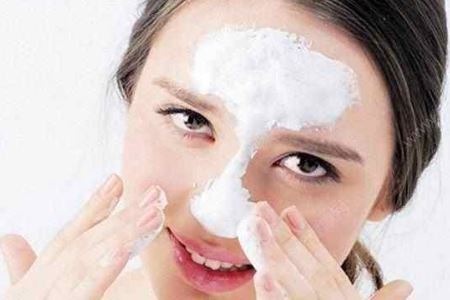In today’s urban environments, exposure to pollution is an inevitable part of daily life. Airborne pollutants, including particulate matter, smoke, and harmful chemicals, can have detrimental effects on the skin, leading to a range of issues from premature aging to acne. This makes anti-pollution cleansing an essential step in any skincare routine. Understanding the importance of cleansing the skin of these pollutants can help protect your skin and maintain its health and radiance.

1. The Impact of Pollution on Skin

Pollution consists of tiny particles and toxic gases that can penetrate the skin’s surface, leading to a variety of skin problems. These pollutants can include:
- Particulate Matter (PM): Fine particles found in the air, such as dust, dirt, and smoke, can clog pores and lead to blackheads, breakouts, and dullness.
- Polycyclic Aromatic Hydrocarbons (PAHs): These are chemicals found in smoke and industrial emissions that can bind to the skin and cause oxidative stress, leading to inflammation and aging.
- Volatile Organic Compounds (VOCs): Found in vehicle exhaust, paints, and cleaning products, VOCs can irritate the skin and exacerbate conditions like eczema and dermatitis.
- Heavy Metals: Pollutants like lead, mercury, and arsenic can be found in the air and can accumulate on the skin, contributing to cellular damage and pigmentation issues.

2. Why Anti-Pollution Cleansing is Crucial
Anti-pollution cleansing is essential for several reasons:

- Removes Pollutants from the Skin: The primary purpose of anti-pollution cleansing is to remove pollutants that accumulate on the skin throughout the day. These particles can penetrate deep into the pores and cause inflammation, irritation, and other skin issues. A thorough cleanse ensures that these harmful substances are effectively removed, preventing them from causing long-term damage.
- Prevents Premature Aging: Pollution is a major contributor to premature aging. The free radicals generated by pollutants can break down collagen and elastin, leading to wrinkles, fine lines, and loss of firmness. Anti-pollution cleansing helps neutralize these free radicals, reducing their impact on the skin and preserving its youthful appearance.
- Reduces Inflammation and Irritation: Pollutants can trigger inflammatory responses in the skin, leading to redness, sensitivity, and breakouts. By cleansing the skin of these irritants, you can reduce inflammation and calm the skin, helping to maintain a clear and balanced complexion.
- Enhances Skin’s Natural Barrier: Regular exposure to pollution can weaken the skin’s natural barrier, making it more susceptible to damage and moisture loss. Anti-pollution cleansing helps to strengthen this barrier by removing harmful particles and allowing the skin to function more effectively. A healthy barrier is crucial for protecting the skin from environmental stressors and maintaining hydration.

3. How to Effectively Implement Anti-Pollution Cleansing
To maximize the benefits of anti-pollution cleansing, it’s important to follow a few key practices:

- Use a Gentle Yet Effective Cleanser: Choose a cleanser that is capable of removing pollutants without stripping the skin of its natural oils. Gel, foam, or cream cleansers with ingredients like activated charcoal, clay, or antioxidants can effectively lift away impurities while protecting the skin’s moisture barrier.
- Double Cleansing: For those exposed to high levels of pollution, double cleansing can be particularly beneficial. Start with an oil-based cleanser to dissolve and remove makeup, sunscreen, and oil-based pollutants. Follow with a water-based cleanser to remove any remaining debris and ensure the skin is thoroughly clean.
- Incorporate Antioxidants: Using a cleanser that contains antioxidants, such as vitamin C, green tea, or niacinamide, can help combat free radicals generated by pollution. These ingredients neutralize oxidative stress and provide an extra layer of protection against environmental damage.
- Cleanse Twice a Day: Consistent cleansing, both in the morning and evening, is essential for removing pollutants that have accumulated on the skin. Evening cleansing is particularly important to remove the day’s buildup and allow the skin to repair and regenerate overnight.

In Conclusion
Anti-pollution cleansing is a critical step in modern skincare, particularly for those living in urban areas where pollution is a constant concern. By effectively removing pollutants from the skin, you can prevent a range of issues, from premature aging to acne, and maintain a healthy, radiant complexion. Incorporating anti-pollution cleansing into your daily routine helps protect the skin from environmental damage, ensuring it remains resilient and youthful despite the challenges posed by today’s polluted environments.

